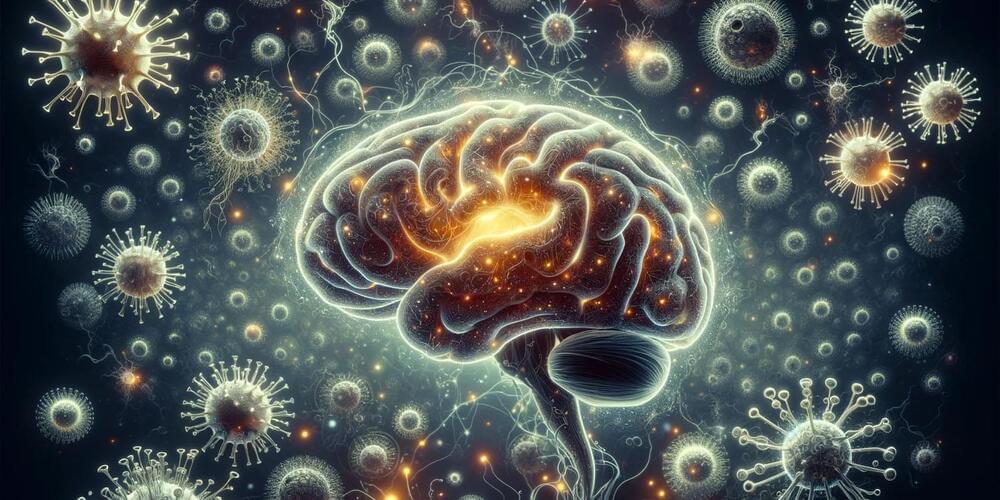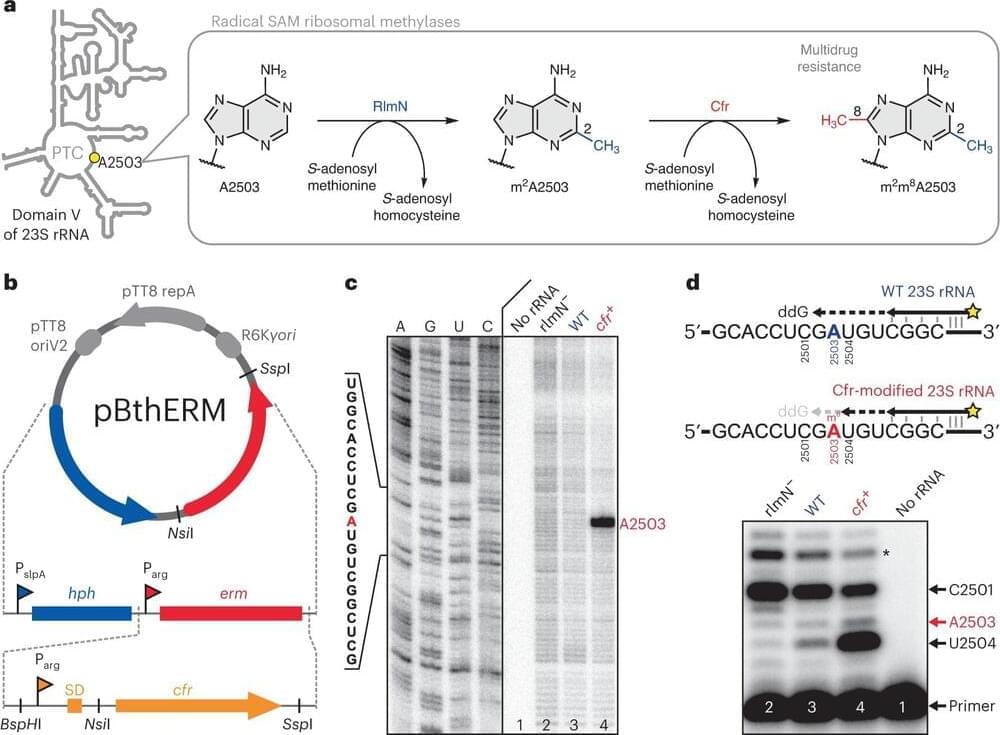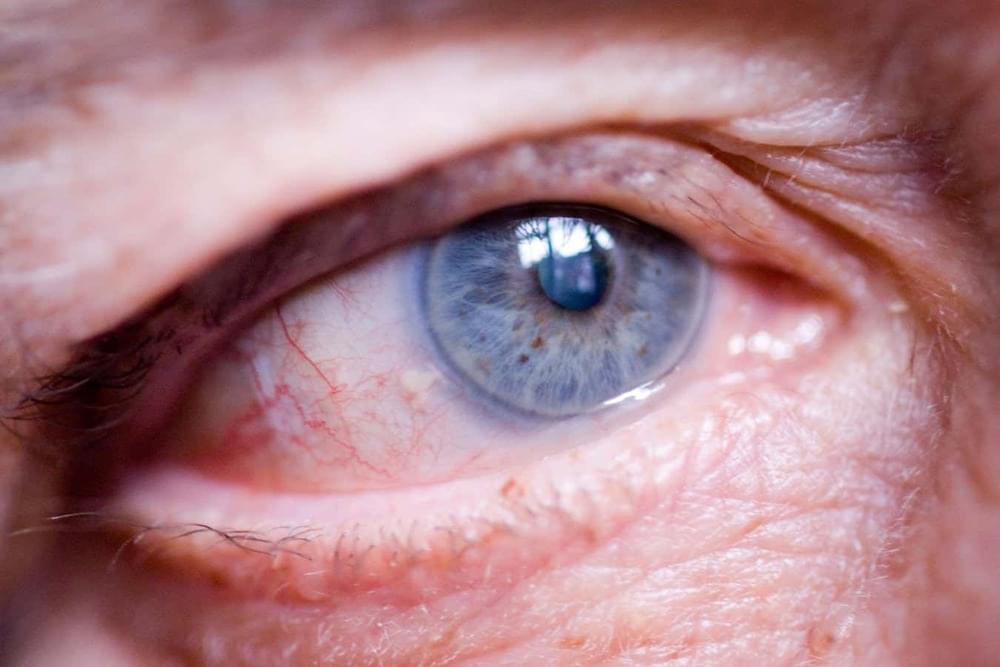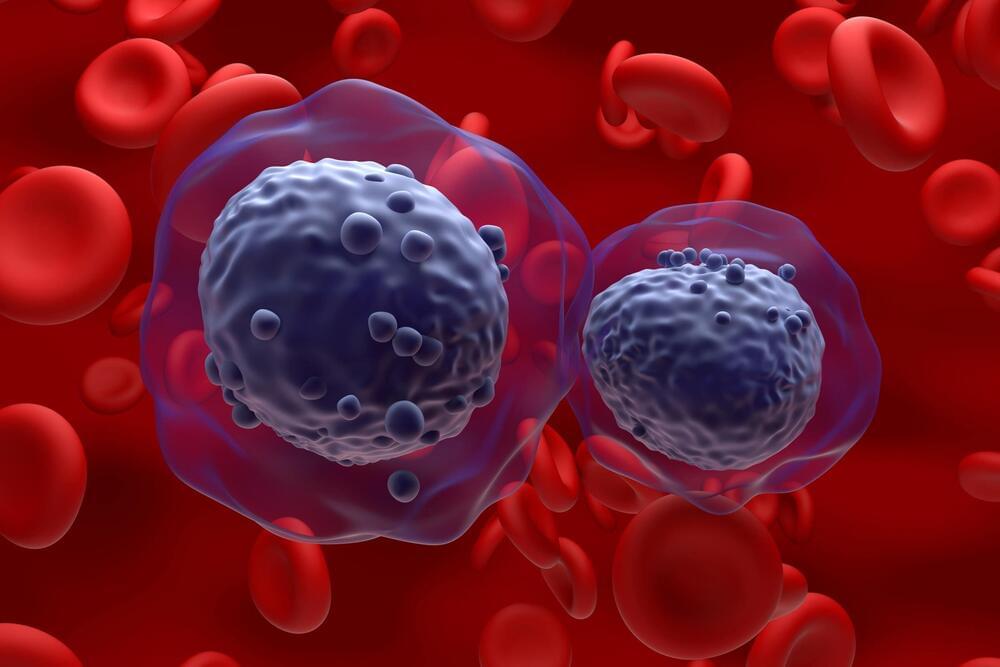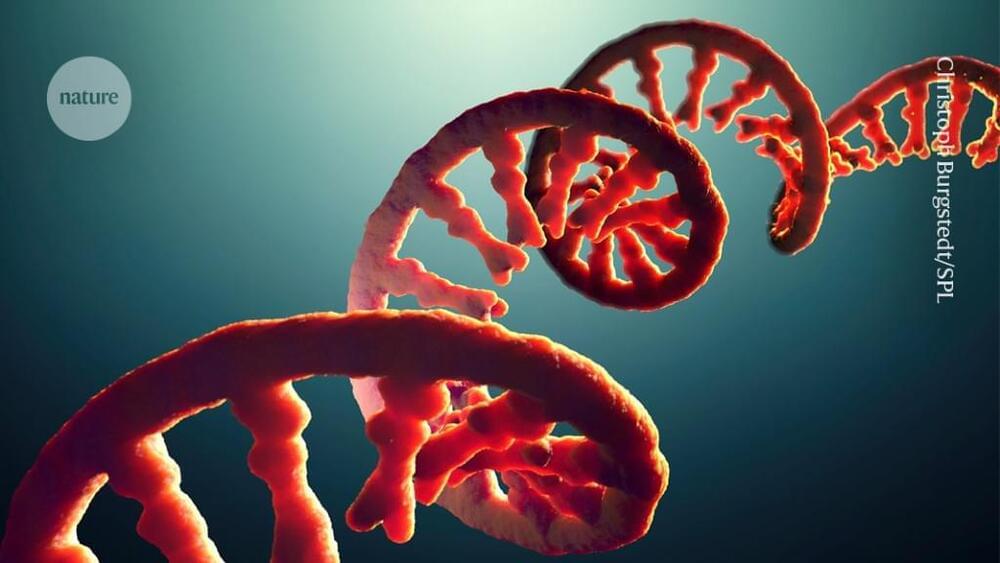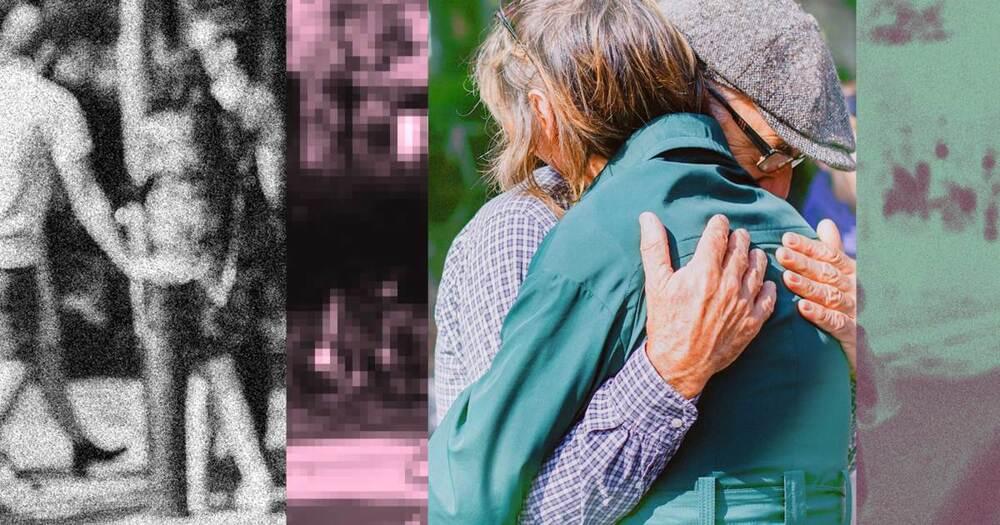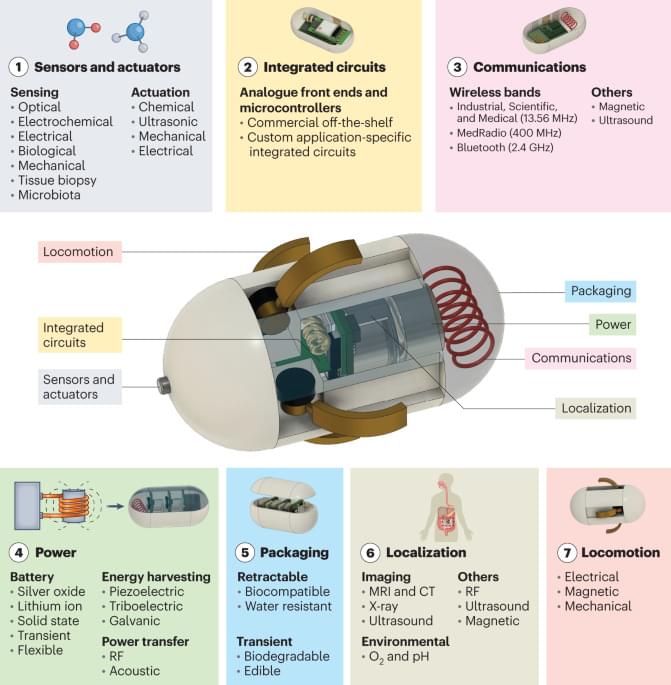Feb 17, 2024
Ancient viruses emerge as unexpected heroes in vertebrate brain evolution
Posted by The Neuro-Network in categories: biotech/medical, evolution, neuroscience
Scentists have uncovered a fascinating link between ancient viruses and the development of myelination, the biological process crucial for the advanced functioning of the nervous system in vertebrates, including humans.
Scientists discovered a gene, ‘RetroMyelin,’ from ancient viruses, essential for myelination in vertebrates, suggesting viral sequences in early vertebrate genomes were pivotal for developing complex brains. This breakthrough in Cell unravels how myelination evolved, highlighting its significance in vertebrate diversity.
